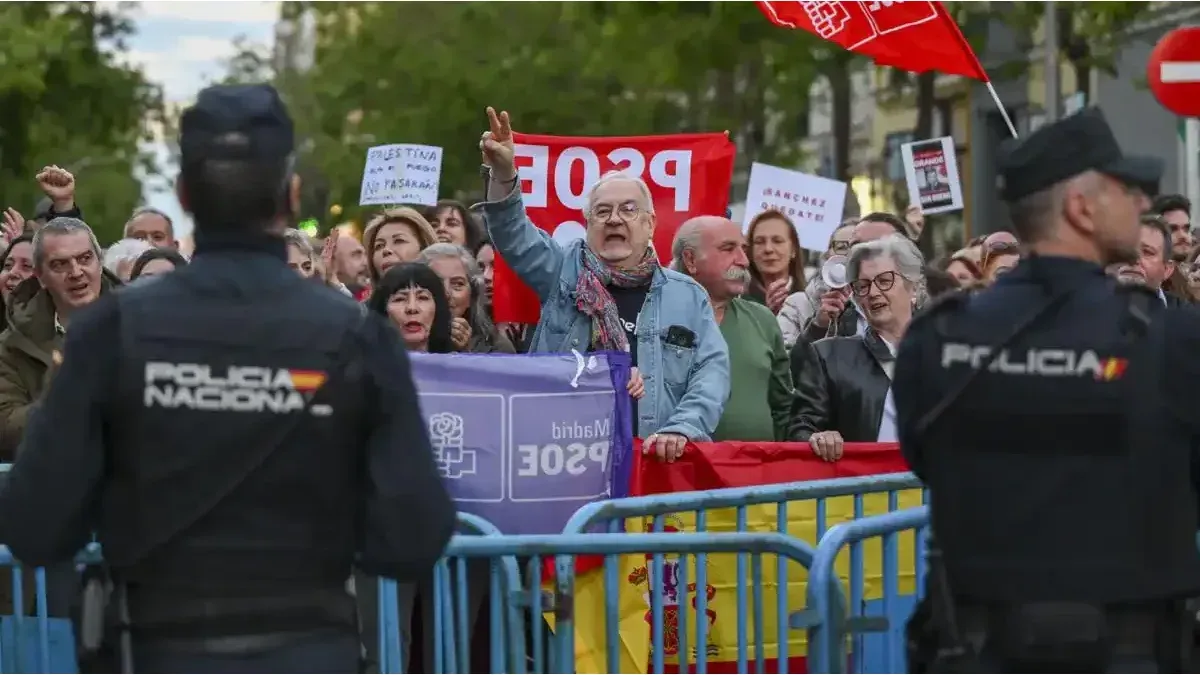Then appears, again, the remembered “angel” of the second semester when inflation would drop to single-digit monthly levels. All of this reflects that there is still concern about the sustainability of the downward path of inflation.
In the middle of everything the exchange issue sneaks in, the great architect of the recent slowdown, in terms of what the entire market is wondering, when is the Government going to unify? Or rather, why is it not unifying now with such a gap? There arise concerns such as the large stock of unwanted pesos parked in various financial assets and the stock of BCRA reserves.
For now, Lovers of the competitive exchange rate cry out not to fall into the trap of the exchange rate anchor again, they maintain that The multilateral real exchange rate has fallen almost 35% since mid-December last year, and is 5% below the level prior to the exchange rate jump in August 2023 (dollar $350). This market block expects the BCRA to accelerate the daily pace of devaluation in April to 5/6%, and in May and June to 8/9%. We will see.
What is said at the tables: incessant arrival of foreign investors
Despite everything, it is incessant number of delegations of foreign investors that continue to visit the country, according to the usual doomsayers attracted by the expensive dollar – perhaps poorly advised by colleagues – although Several are already complaining about the prices in dollars. The truth is that these days many international funds and banks roamed these shores, among them, JPMorgan, Bank of America, Santander, Jefferies and others. There is even still a select group of investors in Buenos Aires who traveled with an Argentine economist who lived decades ago in DC and was closely linked to international banking.
But the interest that the Argentine economy has aroused after the change of government that put it back on the radar of international investors also benefits the select club of Creole gurus who are being increasingly demanded by funds, consulting firms, universities and banks abroad to explain what is happening in Argentina and what can happen. At least, a sector that is reactivated.
Several meetings were held to analyze the balance of the 100 days of the libertarian government, among which the meeting of EMTA in London, very spicy the sustainability of the tax reform and the exchange rate policy of which they participated Andrew Stanners (abrdn), Martin Soler (HSBC Global Asset Management), Kaan Nazli (Neuberger Berman) and Juan Navarro-Staicos (Rokos Capital Management), among others.
In this regard, one of the groups of investors who wandered through Buenos Aires drew attention to the fact that, unlike what many believe, Several representatives of global funds were not so concerned about the issue of governance, What’s more, they considered the reactionary nature of the President in the face of each obstacle faced by the opposition in order to stay the course. They are not worried about political noise, as long as the path of official measures is the one promoted in the electoral campaign. In short, they do not measure governability in terms of dialogue or consensus, if there is a fight the better, but that the government does not give up on its economic ideas.
What is said at the tables: the star sector and the future of the LACs
It seems that the only one that thinks about the most vulnerable today is the International Monetary Fund (IMF), the political scientist who hosted Wall Street funds thought aloud. And speaking of funds and investments, without a doubt the star sector, today, is the energetic. Everyone talks about it and the news that is expected. Perhaps anticipating the wave we understand the entry of Federico Tomasevich as a partner in Patagonia Energy (PE), of the Fratelli Group (of the Chilean Solari Donaggio family, main shareholders of the Sodimac Group and Falabella), who confirmed the investment plan of more than US$100 million in the sector.
Where it seems they are not going to have a very good time, perhaps like most domestic sectors, is the sector of stockbrokers, called “ALyC” in the jargon. For weeks now, the cold has been running down the backs of several operators because they maintain that the chainsaw is coming. Several will be left on the road. Happens that Under the protection of the boom of the MEP dollar and the CCL, and exchange restrictions, the number of LACs grew disproportionately at Chinese rates: more than 100% in the last ten years. Today almost 250 operate.
The core business, of a large part of the new firms, became the peso-dollar transactions and vice versa and the management of surplus cash, and fewer operations linked to the capital market. Therefore, while some wait for the lifting of the stocks to start, others fear it because a large part of the business ends and They will have to focus more on the capital market or close. The probable adjustment in the ALyCs will logically involve the number of producing agents and advisors, which, thanks to the boom, more than doubled and today number almost 1,100.
A banker with international academic pedigree told colleagues about the XBMA meeting at New York University (NYU) of the International Institute for the Study of Cross-Border Investments and Mergers and Acquisitions (NYU, Peking University, and the University of Cambridge). One of the speakers was the head of the CNV, Roberto Silva, who spoke on the panel on Threats of Deglobalization and Rising Geopolitical Tension: Tackling Protectionism, Tariffs, and Political Unrest, and did not miss the opportunity to promote Argentina as an attractive destination for foreign investment. The banker highlighted that there were also Susan Athey (chief economist of the Antitrust Division of the US Department of Justice), Cai Hongbin (dean of the University of Hong Kong), John Fingleton (head of the Office of Fair Trade of the Kingdom United Kingdom), Damien Levie (Head of Technology and Security, European Commission FDI Selection), Liu Qiao (Dean of Guanghua School of Management, Peking University) and Brad Staples (Executive Director, APCO Worldwide) , among others.
What is said at the tables: readings of the tender; bet on the exchange (MEP/Cable)
At a financial breakfast, several millennials exchanged figurines about the new debt tender to cover the maturities of the TX24 Treasury bond that was brought as a novelty, in addition to offering a bond admitted for reserve requirements and a zero-coupon CER bond, a capitalizable bill maturing in January 2025, similar to those issued in 2018, which show a monthly rate (single digit) instead of an annual rate (still three digits). In the end More than half a billion pesos were placed at 5.5%, that is, below the Pases and Badlar rates. For these young market players, it was a moderate bet on the scenario of inflationary deceleration. For others, the market gave up performance so as not to be exposed to the risk of not being in the rate if the stocks remain in place and the BCRA comes up with another rate cut.
Another breakfast theme was “swap”, differential between MEP dollar and Cable dollar, which exceeds 5% at this time of year, something unthinkable and for which there is no agreed explanation. For now, for the people of NEIX, this with the prospect that the gap will close in the coming months, and several regulatory issues will be eliminated, leads to considering that it is a good time to be sold exchange.
The host of the meeting, who was a guide for some foreign funds on their visits to official offices, told his guests that the illustrious visitors explained that The world looked at Argentina with a mixture of amazement and healthy envy, with investors hoping to enter the country at some point but recognizing that for the moment the world offered equally tempting alternatives with significantly lower political and institutional volatility. An executive from a Boston fund, with a degree in political science from Harvard, pointed out to officials that the evaluations made of both Javier Milei and the Chilean Gabriel Boric left traditional macro indicators in the background to focus on whether they understood what what most voters expect from them and how well they are communicating it in all the ways that matter.
In these meetings there was also gossip from outside such as the manna that Donald Trump would receive after the merger agreement between Digital World Acquisition and the Republican candidate’s media startup, Truth Social, which would represent some $3.5 billion to his millionaire assets.
But also the attention, especially of currency market bettors, is on the People’s Bank of China which pushed the renminbi below the level considered key support (7.22 per dollar), leading them to wonder if China is preparing for the devaluation of the yuan. While others are distracted by the yen falling to a 34-year low after the first rate hike in 17 years.
Source: Ambito
I am a 24-year-old writer and journalist who has been working in the news industry for the past two years. I write primarily about market news, so if you’re looking for insights into what’s going on in the stock market or economic indicators, you’ve come to the right place. I also dabble in writing articles on lifestyle trends and pop culture news.




